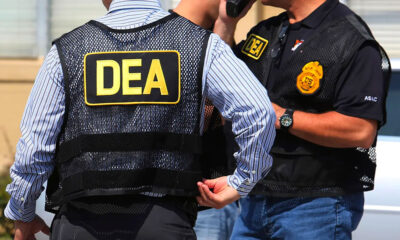
Culture
NYC on the Verge Of Eliminating Drug Testing for Marijuana Users
Measure could prohibit THC testing on the job.
There could come a day very soon when job applicants are no longer required to pass a drug test for marijuana to work in New York City. A piece of legislation designed to eliminate this pre-employment requirement from the equation was approved earlier this week by the city council. If all goes according to plan, most employers would be prohibited from testing for THC metabolites before offering someone a job. It is perhaps the most progressive slice of drug reform that we’ve seen in a jurisdiction governed by a state that cannot seem to figure out how to legalize the cannabis plant.
Ever since Governor Cuomo vowed last year to legalize the leaf for recreational use, the New York City Council’s Committee on Civil Human Rights has been on the path to changing the city’s drug testing policies. Even though the state has run into challenges for actually getting a marijuana law on the books, Committee Chair Mathieu Eugene argued on Tuesday that moving forward with a new drug testing policy was necessary to provide more citizens with opportunities to work.
“We need to be creating more access points for employment, not [fewer],” Williams said in a release. “It makes absolutely no sense that we’re keeping people from finding jobs or advancing their careers because of marijuana use.”
The bill is solid in the way that it would prevent a jobless person from being disqualified from the employment pool based solely on a failed drug screen for marijuana. However, careless cannabis users would not be protected at every turn. In the case of an accident, companies would still be allowed to test for cannabis and offer up disciplinary action, up to and leading to termination, if the results come back positive for THC. The measure essentially puts pot in the same ranks with alcohol – it’s not a drug that companies test for, but workers cannot have it in their system.
Furthermore, not every career choice in New York would get to reap the benefit of the no pot testing standard. Cops, construction workers and commercial drivers would still have to pee clean before being offered a position. The idea behind the legislation is not for companies to turn a blind eye to impairment, but to scratch the discrimination factor from the beginning of the job application process.
“This is not a permission to come to work high, it is not permission to come to work impaired, but we are not speaking about that,” Public Advocate Jumaane Williams, the bill’s sponsor, said on Tuesday. “We are speaking about people who are prevented from going to work in the first place.”
Marijuana is one of the most commonly used substances in America. Some of the latest data shows around 33 million people in the United States — in both legal states and areas of prohibition — are regular users. Still, most companies across the country continue to test for THC as a prerequisite for employment.
This has been a subject of considerable controversy over the years, especially given the unpredictable nature of how marijuana metabolizes in the body. Depending on the person, THC can sometimes linger in their system for up to 30 days. Even someone who is not a regular user and just happens to smoke weed one night at a party can find themselves in a pinch when it comes to passing a drug screen. Most other drugs, like cocaine and heroin, will clear out of a user within a few days.
It’s a policy that could start to change nationwide if New York City can pull it off with some level of success.
Drug reform advocates are thrilled that the committee has stepped up to take leadership on this issue. Testing applicants for weed “does little to determine how a particular person would perform in their job,” said Dionna King, a policy manager with the Drug Policy Alliance. “It’s just a way to eliminate people based on actions done in private that don’t really affect how they will show up as day-to-day employees.”
The no-pot whiz quiz bill is not a done deal just yet. It now goes before the full city council for a vote.
TELL US, have you ever been high at work?

























